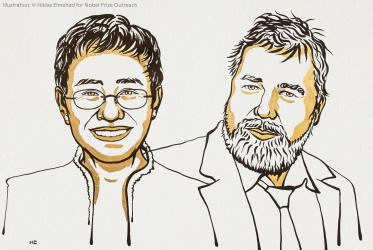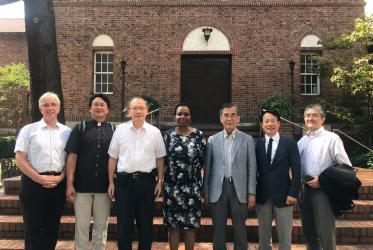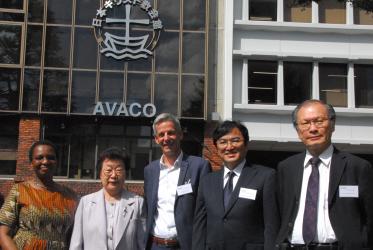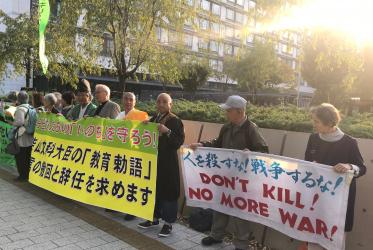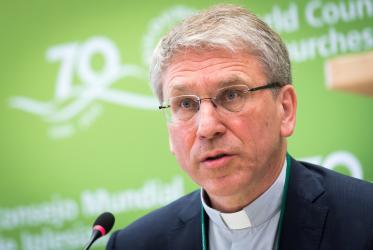Displaying 1 - 20 of 31
14 October 2021
WCC offers prayer during Japanese peace conference
11 March 2021
New student body at Bossey Ecumenical Institute “a source of joy”
14 September 2020
In Japan, spirit of koinonia deepens
26 September 2019
In Japan, theologians reflect on today’s global manifestations of racism
18 September 2019
In Japan, indigenous and ecumenical youth call for action against racism
12 September 2019
WCC condemns massacre of farmers in Philippines
12 April 2019
All pilgrim routes lead to COP24
11 December 2018
Diakonia: “a tool to reach abundance of life”
24 July 2018
Seven weeks of Lent highlight water justice in Latin America
12 February 2018
